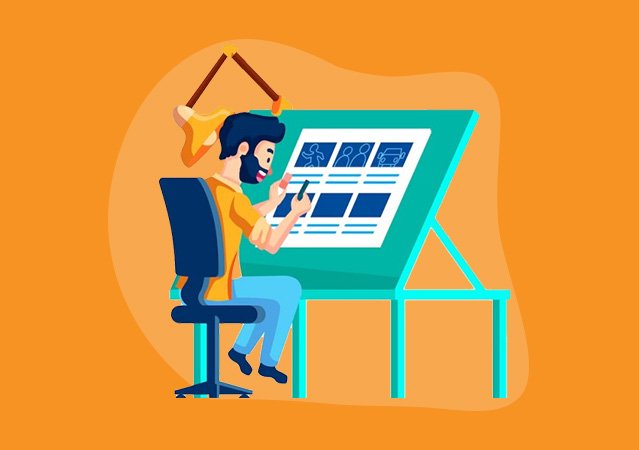Database development is a critical skill in today’s data-driven world, where businesses and organizations rely heavily on information systems to function efficiently. As a database developer, you are responsible for designing, implementing, and managing databases that store and organize data in ways that are accessible and secure. If you’re looking to get into the field or advance your career, this blog will guide you through the essential steps to work as a database developer, as well as how to find the best opportunities through freelancing platforms like Paperub.
Understand the Basics of Database Development
The first step in becoming a database developer is to gain a solid understanding of what database development involves. At its core, database development includes designing, building, and maintaining databases that allow organizations to store and access information efficiently. As a database developer, you'll need to work with various database management systems (DBMS) like MySQL, Oracle, SQL Server, or PostgreSQL.
Your primary role will include:
- Database Design: Creating schemas, tables, and relationships that define how data is organized.
- Database Querying: Writing SQL queries to retrieve and manipulate data.
- Data Modeling: Structuring data to meet the specific needs of a business.
- Optimization: Ensuring that the database performs well, even with large amounts of data.
- Security and Backup: Protecting the database from unauthorized access and ensuring that it is backed up in case of failure.
By developing proficiency in these areas, you can build a strong foundation to excel in database development.
Learn Key Programming Languages and Tools
A successful database developer must be familiar with several programming languages and tools. The most important of these is SQL (Structured Query Language), the standard language used for managing and querying relational databases. You should also be comfortable with other tools like:
- NoSQL Databases: Learn about non-relational databases like MongoDB and Cassandra for handling unstructured data.
- Database Management Systems (DBMS): Familiarize yourself with popular DBMS like MySQL, PostgreSQL, and Microsoft SQL Server.
- Data Modeling Tools: Tools like ER/Studio, PowerDesigner, or Lucidchart are great for visualizing database structures.
- Scripting Languages: Python, Java, or C# may be used in combination with SQL to automate tasks or create applications that interact with databases.
Mastering these tools will ensure that you can design, manage, and optimize databases for a variety of use cases, from small businesses to large enterprises.
Gain Experience and Build a Portfolio
As with any technical field, practical experience is key to becoming a proficient database developer. Start by working on personal projects, such as designing a database for a small business, or building your own portfolio website to showcase your skills. If you have the chance to intern or collaborate on real-world projects, it can provide invaluable hands-on experience.
Additionally, consider building a portfolio of your work. Show potential employers or clients that you can solve real-world database problems and demonstrate your ability to design databases that are both functional and efficient.
Consider Freelancing as a Database Developer
Freelancing offers flexibility, the opportunity to work with a variety of clients, and the chance to focus on specific areas of database development that interest you. By finding database development jobs on freelancing platforms, you can work from anywhere, collaborate with clients globally, and set your own rates.
Platforms like Paperub make it easy to find freelance database development jobs and connect with clients who need your expertise. By creating a profile on these platforms, you can highlight your skills, experience, and past projects, making it easier for clients to find you. Many businesses, especially startups or small enterprises, prefer to hire freelancer database development professionals for short-term projects, rather than investing in full-time employees.
Freelancing also gives you the freedom to specialize in niche areas of database development. You could focus on a particular DBMS, database optimization, or even data security, tailoring your skills to meet the specific needs of clients.
Build a Strong Network
Networking is an essential part of working as a freelancer, and it can also benefit database developers. You can connect with other professionals in the field through online forums, LinkedIn groups, or specialized conferences. By attending webinars, online seminars, and even in-person meetups, you can expand your reach and increase your chances of finding quality freelance opportunities.
Additionally, keep an eye out for job listings in online communities or job boards like Paperub, which regularly post freelance and full-time database development roles. Building a professional network and staying engaged with the industry can open up more opportunities for work and collaboration.
Stay Updated with the Latest Trends
The tech industry, especially database development, is continuously evolving. To remain competitive, it’s crucial to stay up-to-date with the latest trends, tools, and technologies. Keep learning about new database systems, advancements in data science, and emerging best practices for database security and performance.
Subscribe to industry newsletters, follow relevant blogs, and participate in webinars to stay informed. By staying current, you can ensure that your skills are always in demand, whether you’re looking to find freelance database development jobs or full-time opportunities.
Key Skills for Database Developers
To be a successful database developer, you need more than just technical expertise. Here are some key skills that can help you stand out:
- Problem Solving: Database developers often face complex challenges that require creative and efficient solutions.
- Attention to Detail: Small mistakes can lead to significant data issues, so attention to detail is vital.
- Communication: As a freelancer, you'll need to communicate effectively with clients to understand their requirements and deliver high-quality results.
- Time Management: Freelancers must be able to manage their time efficiently to meet deadlines and balance multiple projects.
Conclusion
Becoming a database developer involves learning essential technical skills, gaining practical experience, and continuously improving your knowledge. If you're interested in freelancing, platforms like Paperub offer excellent opportunities to find database development jobs and hire freelancer database development professionals. Whether you choose to work full-time in-house or as a freelancer, the demand for skilled database developers continues to grow. By following the steps outlined in this guide, you'll be on your way to a successful career in database development.
Trending Articles
World-class articles, delivered weekly.
Django Developers
Java Developers
AWS Developers
Machine Learning Engineers
Data Scrapers
Node.js Developers & Programmers
C++ Programmers & Developers
Xero Developer
C# Developers & Programmers
Georgia, GA Python Developers
NC Python Developers
Mississippi, MS Python Developers
Tennessee, TN Python Developers
Colorado, CO Python Developers
Alabama, AL Python Developers
Alabama, AL Python Developers
Michigan, MI Python Developers
New Jersey, NJ Python Developers
Django Jobs
Web Data Scraping Jobs
Node.js Jobs
C++ Developer Jobs
API Jobs
C# Programming Jobs
TensorFlow Jobs
TensorFlow Jobs
TensorFlow Jobs
Data Analysis and Reporting Ser...
Web Programming & Development Se...
Website Builders & CMS Software Services
Join the Paperub® community

